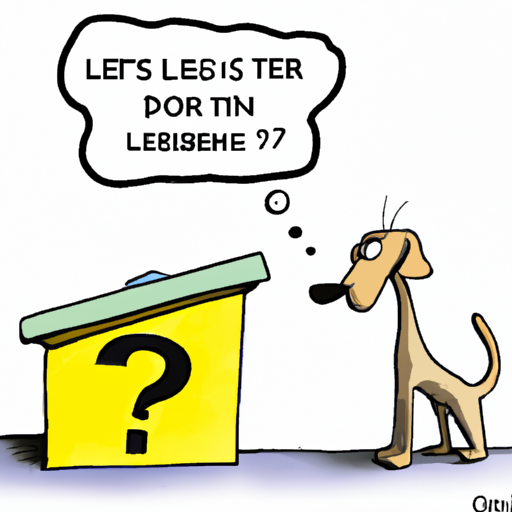1. Understanding Your Dog’s Behavior
You might be shocked the first time you witness your dog eating cat feces. You might feel worried and confused, asking yourself, “Is this normal?”. Understanding why your dog engages in this behavior, known as coprophagia, can offer you some peace of mind.
First, know that dogs are naturally curious creatures. They explore their environment using all their senses – touch, taste, sight, sound, and smell. While humans may find the habit of eating feces revolting, dogs don’t share our cultural taboos. In fact, they might be attracted to the strong scent of cat feces, seeing it as a potential source of nutrition.
Second, dogs are scavengers by nature. In the wild, canines often eat whatever they can find to survive, and this includes feces. Domesticated dogs have retained this instinct, and while they usually have plenty of food provided by caring owners like you, the scavenger instinct can still kick in from time to time.
2. Health Concerns
While it might be natural for dogs to engage in coprophagia, it’s important to understand the potential health risks associated with this behavior. Eating feces can expose your dog to several harmful parasites and bacteria, some of which can be transmitted to humans.
Here’s a table that outlines some potential risks:
| Risk | Description |
|---|---|
| Parasites | Cat feces can contain parasites like toxoplasma, which can be harmful if ingested by dogs. |
| Bacteria | Harmful bacteria, like E. coli and salmonella, could be present in feces. |
| Disease | Diseases like feline panleukopenia can be transmitted through feces. |
3. Prevention Strategies
Fortunately, there are several steps you can take to prevent your dog from eating cat feces.
-
Keep the litter box clean: A clean litter box is less attractive to your dog. Make it a habit to scoop out feces on a daily basis.
-
Use deterrents: There are products available that can make cat feces less appealing to dogs. These are typically added to the cat’s food and pass through their system, making their feces unattractive to dogs.
-
Training and supervision: Train your dog to leave the litter box alone. This might entail teaching them a “leave it” command. Always supervise your dog when they are around the litter box.
4. When to Seek Veterinary Help
If your dog’s coprophagia becomes a persistent habit, or if they show signs of illness after eating cat feces, it’s time to seek veterinary help. Symptoms like vomiting, diarrhea, lethargy, or changes in appetite could indicate a serious health issue. Always remember, your dog’s health is paramount, and it’s better to seek help sooner rather than later.
5. Frequently Asked Questions (FAQs)
Q: Is it normal for dogs to eat cat feces?
A: While it might be shocking to us, it’s relatively common due to dogs’ natural curiosity and scavenger instincts.
Q: Can eating cat feces make my dog sick?
A: Yes, there are potential health risks, including parasites and bacterial infections.
Q: What can I do to stop my dog from eating cat feces?
A: You can keep the litter box clean, use deterrents, and train your dog to leave the litter box alone.
Remember, as a caregiver for your furry friend, understanding their behavior and responding appropriately is key to ensuring a healthy and happy life for your pet.



